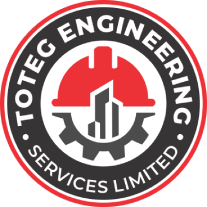Mechanical engineering services encompass a wide range of activities related to the design, analysis, manufacturing, and maintenance of mechanical systems and components. Here’s a detailed overview of key mechanical engineering services:
1. Design and Development
- Product Design: Creating and developing new mechanical products, from consumer goods to industrial machinery, focusing on functionality, aesthetics, and manufacturability.
- System Design: Designing complex mechanical systems, such as HVAC systems, automated machinery, and robotic systems, to meet specific operational requirements.
2. Analysis and Simulation
- Stress and Strain Analysis: Evaluating the mechanical stresses and strains on components and structures using tools like Finite Element Analysis (FEA).
- Thermal Analysis: Assessing heat transfer, thermal stresses, and temperature distributions in mechanical systems.
- Dynamic Analysis: Studying the behavior of mechanical systems under dynamic conditions, such as vibrations and oscillations.
3. Manufacturing and Fabrication
- Prototyping: Developing prototypes to test and validate designs before full-scale production.
- Manufacturing Support: Providing expertise in manufacturing processes, including machining, casting, welding, and additive manufacturing.
- Quality Control: Ensuring that manufactured components meet design specifications and quality standards.
4. Maintenance and Repair
- Preventive Maintenance: Designing and implementing maintenance schedules to prevent mechanical failures and extend the lifespan of equipment.
- Corrective Maintenance: Diagnosing and repairing mechanical failures and issues to restore equipment to proper functioning.
- Equipment Upgrades: Modifying or upgrading existing equipment to improve performance or adapt to new requirements.
5. Energy Systems
- Energy Efficiency: Designing systems and solutions to improve energy efficiency in mechanical systems and processes.
- Renewable Energy: Developing and integrating renewable energy technologies, such as solar thermal systems, wind turbines, and bioenergy systems.
- Power Generation: Designing mechanical systems for power generation, including steam turbines, gas turbines, and generators.
6. HVAC Systems
- Heating, Ventilation, and Air Conditioning: Designing and optimizing HVAC systems for residential, commercial, and industrial applications.
- Thermal Comfort: Ensuring that HVAC systems provide comfortable indoor environments and meet regulatory standards.
7. Fluid Mechanics
- Pumping Systems: Designing and analyzing pumps and fluid distribution systems for various applications.
- Piping Systems: Designing and evaluating piping networks for transporting fluids, including considerations for pressure, flow, and material compatibility.
8. Robotics and Automation
- Robotic Systems: Designing and implementing robotic systems for automation in manufacturing, assembly, and other applications.
- Control Systems: Developing control systems for automated machinery and processes, including programming and integration.
9. Mechatronics
- Integration of Mechanical and Electronic Systems: Designing systems that integrate mechanical, electronic, and control components, such as smart devices and advanced manufacturing systems.
10. Consulting and Project Management
- Technical Consulting: Providing expert advice on mechanical design, analysis, and system integration for various projects.
- Project Management: Overseeing mechanical engineering projects to ensure they are completed on time, within budget, and to specification.
11. Sustainability and Environmental Impact
- Eco-friendly Design: Incorporating sustainable practices and materials into mechanical design to minimize environmental impact.
- Waste Reduction: Designing systems and processes to reduce waste and improve recycling and resource efficiency.


